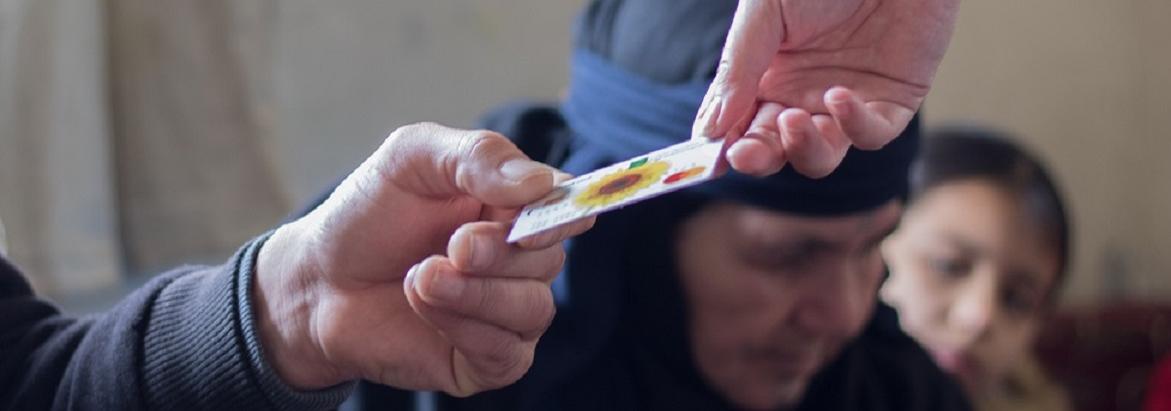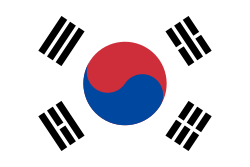IOM Vision
Since 2011, IOM has provided life-saving assistance and early-recovery and resilience programmes for Syrians affected by the conflict across the region, as well as for the communities and countries which host them. In 2020, IOM will continue to implement activities in Turkey, Jordan, Lebanon, Iraq and Egypt as part of the Regional Refugee and Resilience Plan (3RP). IOM's interventions will be multi-sectoral in nature, responding to the needs and priorities of affected populations and leveraging IOM's operational presence, technical expertise and strong relationships with national and local authorities.
Objective
Saving lives and protecting people on the move
Syrian refugees and host community members based on assessed vulnerabilities and priorities.
In order to meet the basic needs of the affected population, IOM plans to provide the following assistance in Turkey, Lebanon, Jordan and Iraq:
- Multi-purpose cash/voucher-based assistance for vulnerable households;
- Specialized one-time cash assistance e.g. for winterization support or other specialised needs.
IOM supports cash/voucher-based assistance as a way for beneficiaries to meet their specific priority needs and build their resilience.
In order to address the significant protection needs of the affected population, IOM plans to:
- Provide case management and individual support for vulnerable individuals in Turkey;
- Conduct awareness-raising and capacity-building activities on counter-trafficking for front-line responders in Turkey and Jordan.
In order to begin to address the mental health and psychosocial support (MHPSS) needs of the affected population, IOM plans to:
- Provide psychosocial services and counselling through mobile MHPSS teams and Community Development Centres in Lebanon.
In order to meet the shelter and non-food item needs of the affected population, IOM plans to:
- Provide shelter rehabilitation support in Turkey;
- Provide rental support and sealing-off kits in Lebanon;
- Conduct shelter upgrades in out-of-camp settings in Iraq.
In order to meet the health needs of the affected population, IOM plans to:
- Carry out health promotion activities in Lebanon;
- Conduct health consultations for newly arrived refugees by mobile medical teams; referrals to secondary/tertiary health centres; and health awareness activities at border points and in-camp settings in Iraq;
- Provide general healthcare screenings and critical surgical interventions in Egypt.
In order to meet a range of transportation needs of refugees in Jordan, IOM plans to provide various logistical services. This includes:
- Fitness-to-travel screenings for beneficiaries;
- The provision of medical escorts as part of the transportation assistance for spontaneous refugee returns.
Objective
Driving solutions to displacement
Syrian refugees and host community members will be targeted on the basis of assessed needs and priorities. Local and national authorities will be supported to strengthen the provision of basic services for vulnerable communities.
In order to promote durable solutions for the affected Syrian population, IOM plans to:
- Provide a range of livelihoods activities, including job placement schemes, cash grants for small business creation and expansion, entrepreneurship support, and cash-for-work opportunities in Turkey, Lebanon, Jordan, Iraq and Egypt.
- Carry out education-related activities, including school rehabilitation and transportation support in Turkey and Iraq.
In order to build local capacity on mental health and psychosocial support in Turkey, IOM plans to:
- Support community-based protection services providing psychosocial support and case management;
- Support community centres providing multiples services including legal counselling and referral services.
In order to promote community stabilization and social cohesion in Turkey, Lebanon and Iraq in areas hosting large numbers of Syrian refugees, IOM plans to provide quick-impact projects aiming to respond to community priorities using participatory approaches to enhance social cohesion.
IOM's activities will seek to support communities - both urban and rural - that have undergone significant socioeconomic and social challenges associated with hosting large numbers of Syrian refugees. Programming will include the provision of essential services, promotion of social cohesion and supporting inclusive economic recovery.
In order to increase the availability of health services for Syrian refugees in Turkey, Lebanon, Jordan, Iraq and Egypt, IOM plans to carry out a range of activities to support health care facilities, including the provision of medical supplies, equipment, and capacity building.
In order to support the recovery and transition phase in Lebanon in the context of the return and reintegration process of Lebanese returnees, IOM will provide registration activities for returnees (Lebanese) through its Displacement Tracking Matrix (DTM).
Analysis of existing DTM data or data from adapted DTM tools, often in combination with other available data and analysis, can contribute towards providing an evidence base for transition and recovery programming and the measurement of progress towards more development-orientated outcomes, including durable solutions.
Objective
Strengthen preparedness and reduce disaster risk
Syrian refugees and host community members.
In order to improve the ability of IOM and build the capacities of key stakeholders (including governments, professional response organizations, communities, and individuals) to anticipate and effectively respond to the impact of likely, imminent or current hazards, events or conditions, IOM’s plans to carry out border infrastructure upgrades and capacity building for national authorities in Lebanon and Jordan:
Turkey, Egypt, Iraq, Jordan, Lebanon
The map used here is for illustration purposes only. Names and boundaries do not imply official endorsement or acceptance by IOM.
Figures are as of 31 December 2023. For more details of IOM's operational capacity in country, please see the IOM Capacity section.













